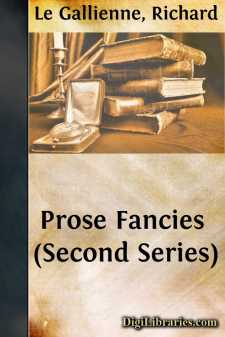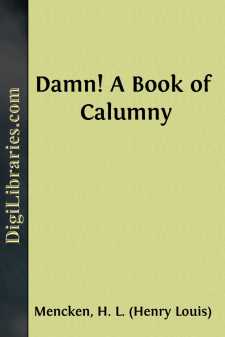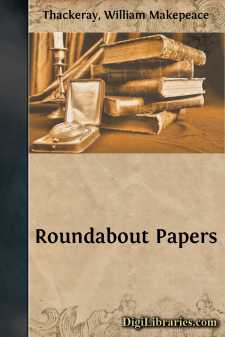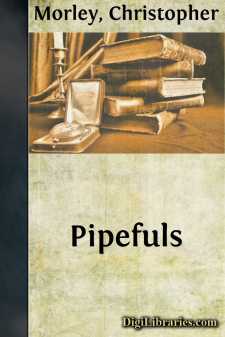Literary Collections
- American 84
- Ancient, Classical & Medieval 14
- Asian 1
- Australian & Oceanian 1
- Canadian 55
- Continental European 121
- English, Irish, Scottish, Welsh 179
- Essays
- General 24
- Letters 46
- Middle Eastern 1
Essays Books
Sort by:
A SEVENTH-STORY HEAVEN At one end of the city that I love there is a tall, dingy pile of offices that has evidently seen more prosperous fortunes. It is not the aristocratic end. It is remote from the lordly street of the fine shops of the fair women, where in the summer afternoons the gay bank clerks parade arm-in-arm in the wake of the tempestuous petticoat. It lies aside from the great exchange...
more...
PATER PATRIÆ If George Washington were alive today, what a shining mark he would be for the whole camorra of uplifters, forward-lookers and professional patriots! He was the Rockefeller of his time, the richest man in the United States, a promoter of stock companies, a land-grabber, an exploiter of mines and timber. He was a bitter opponent of foreign alliances, and denounced their evils in harsh,...
more...
THE SUFFRAGIST Rightly or wrongly, it is certain that a man both liberal and chivalric, can and very often does feel a dis-ease and distrust touching those political women we call Suffragettes. Like most other popular sentiments, it is generally wrongly stated even when it is rightly felt. One part of it can be put most shortly thus: that when a woman puts up her fists to a man she is putting herself...
more...
ON A LAZY IDLE BOY. I had occasion to pass a week in the autumn in the little old town of Coire or Chur, in the Grisons, where lies buried that very ancient British king, saint, and martyr, Lucius,* who founded the Church of St. Peter, on Cornhill. Few people note the church now-a-days, and fewer ever heard of the saint. In the cathedral at Chur, his statue appears surrounded by other sainted persons...
more...
LEAVES FROM A NOTE BOOK IN his Memoirs, Kropotkin states the singular fact that the natives of the Malayan Archipelago have an idea that something is extracted from them when their likenesses are taken by photography. Here is the motive for a fantastic short story, in which the hero—an author in vogue or a popular actor—might be depicted as having all his good qualities gradually photographed out...
more...
by:
Max Beerbohm
Dandies and Dandies How very delightful Grego's drawings are! For all their mad perspective and crude colour, they have indeed the sentiment of style, and they reveal, with surer delicacy than does any other record, the spirit of Mr. Brummell's day. Grego guides me, as Virgil Dante, through all the mysteries of that other world. He shows me those stiff-necked, over-hatted, wasp-waisted...
more...
Considering that most friendships are made by mere hazard, how is it that men find themselves equipped and fortified with just the friends they need? We have heard of men who asserted that they would like to have more money, or more books, or more pairs of pyjamas; but we have never heard of a man saying that he did not have enough friends. For, while one can never have too many friends, yet those one...
more...
by:
Bernard Shaw
WHY NOT GIVE CHRISTIANITY A TRIAL? The question seems a hopeless one after 2000 years of resolute adherence to the old cry of "Not this man, but Barabbas." Yet it is beginning to look as if Barabbas was a failure, in spite of his strong right hand, his victories, his empires, his millions of money, and his moralities and churches and political constitutions. "This man" has not been a...
more...
INTRODUCTION. I sincerely rejoice that Dr. Lightfoot has recovered from his recent illness. Of this restoration the vigorous energy of his preface to his republication of the Essays on Supernatural Religion affords decided evidence, and I hope that no refutation of this inference at least may be possible, however little we may agree on other points. It was natural that Dr. Lightfoot should not be...
more...
THE COLOUR OF LIFE Red has been praised for its nobility as the colour of life. But the true colour of life is not red. Red is the colour of violence, or of life broken open, edited, and published. Or if red is indeed the colour of life, it is so only on condition that it is not seen. Once fully visible, red is the colour of life violated, and in the act of betrayal and of waste. Red is the...
more...











